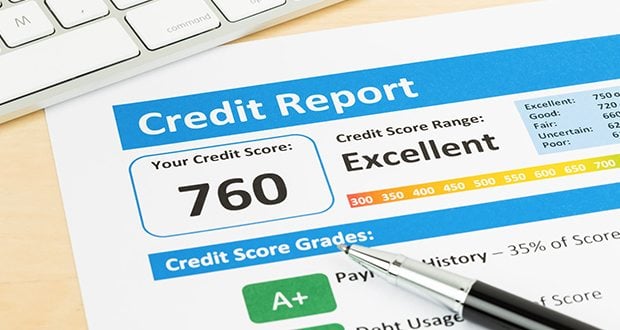The virus has thrown up a lot of financial roadblocks for people that were making serious progress towards buying a home this year. Make no mistake about it, your credit score does make a difference in being able to qualify for a bank-based mortgage. Although it is possible (but difficult) to find private mortgages with a low or no credit score, virtually every home buyer will have their credit score scrutinized by the lender. That makes it difficult for people that the virus caused to become temporarily unemployed, fall behind on car and student loan payments, missed rent payments, and find their credit scores blemished for other reasons.

But not all is lost as long as you don’t give up trying to buy a home because you’ve come to believe some of the myths that swirl around how your credit score is evaluated. Let’s bust some of the bigger myths.
Myth #1 - You need a credit score above 700. The FICO credit score goes up to 850. Anything above 700 is considered a good score but the fact is that millions of people obtain mortgages with scores all of the way down to 580. Your mother or father may have told you that you need a score above 700 but that is only to qualify for the lowest interest rates. According to Experian, “a score above 760 will qualify you for the best interest rates.” But the FHA will guarantee a mortgage for a credit score as low as 580 and only requires a down payment as low as 3.5% of the purchase price. In fact, the FHA allows credit scores as low as 500 but a higher down payment is required for anything below 580.
Myth #2 - Big negatives on your credit report disallow a mortgage. That is false. The fact is that a mere 1.2% of Americans have a perfect credit score of 850. Almost all of us have something less than perfect credit reports. The most damage is done from a bankruptcy or previous foreclosure. Again, you want to look to the FHA for the most lenient requirements for negative events on your credit report. For a Chapter 7 Bankruptcy, the waiting period is two years (individual lenders may require longer). Chapter 13 Bankruptcies are allowed after payments to creditors have been made and verified for at least one year. FHA insured mortgages generally require a waiting period of three years after a foreclosed or a deed-in-lieu of foreclosure. However, if the foreclosure was your primary residence with extenuating circumstances, an exception may be granted if you have again established good credit.
Myth #3 - Shopping for a mortgage lowers your credit score. You need to be aware that individual lenders have requirements that can be different from FHA requirements. Although the FHA might be guaranteeing a lender’s loan, it’s possible and frequent for lenders to have requirements that are more stringent than the FHA. For instance, many lenders have a minimum credit score requirement of 620 for a loan that the FHA allows a score of 580. Shopping for a lender can find the ones allowing a score of 580. Different lenders will also offer you higher and lower interest rates along with many other options that you can choose from. According to the U.S. Consumer Financial Protection Bureau, “Within a 45-day window, multiple credit checks from mortgage lenders are recorded on your credit report as a single inquiry.”
Myth #4 - A higher-income job gets you a higher credit score. That is wrong for several reasons. Although a higher income might qualify you for a larger mortgage, it is not supposed to affect how your credit score is calculated. Plenty of people with high incomes have low credit scores just as many lower-income people have good credit scores. Your credit score is a measure of how you manage your debt. It is not a measure of your income.
Busting these myths should give you the confidence to continue working towards purchasing a home even if you’ve had financial setbacks during COVID-19. Still, it’s always a good thing to take action to improve your score so that you’ll qualify for a more favorable interest rate and other desirable mortgage options. The article links below can help you make big improvements in your credit score:
Tips for Improving Your Credit Score to Buy a Home
High credit scores no longer necessary for the best rates, study finds
Improving Your Credit Score to Buy Your Dream Home
Please comment with your thoughts about credit scores during COVID-19.
Also, our weekly Ask Brian column welcomes questions from readers of all experience levels with residential real estate. Please email your questions, inquiries, or article ideas to [email protected].
Very few lenders require less than a 620 Mid-FICO score to qualify for even an FHA loan and many requirement 640 -680 scores. This is due to the Pandemic. Underwriting guidelines have been supplemented with Temporary Covid-19 overlays that add to the already vigourous mortgage qualifying requirements. By the way, Credit Karma credit scores and those free scores from Capital One, Discover, and other credit card issuing banks are not the same credit scores that Mortgage lenders use. The algorithms used in the various FICO models are different for mortgage lenders than ordinary consumer credit scores. Financing a home for 30 years requires more stringent risk-based considerations than financing an auto for 4-7 years or receiving a revolving Credit account.
Hello Sheldon,
Thanks for your helpful insights. About credit scores, it is always good to work with a mortgage professional early in the process.
Thanks again,
Brian Kline